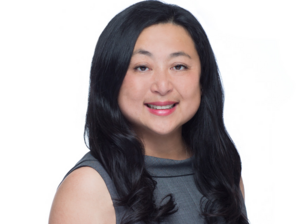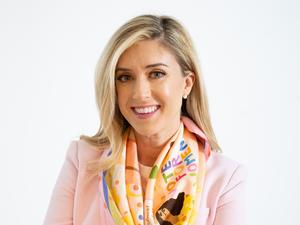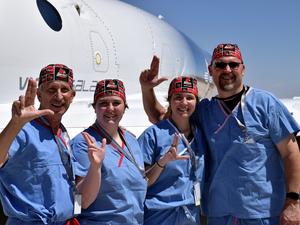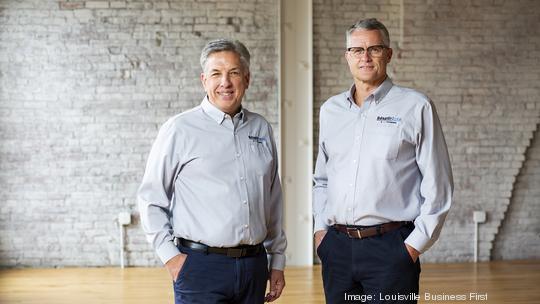
Thinking about building a medical device company? Don't expect immediate gratification.
It takes the right timing, the right technology and the right team to bring it all to fruition. And for AdaptivEndo, that process took more than half a decade.
Now, the Louisville company is working on deals to commercialize its line of innovative endoscopy products that aim to reduce infection risk and increase access to patient care.
Ed Fancher, AdaptivEndo founder and president, had been mulling over the complex problem of endoscopy-associated infections for years.
Endoscopes are flexible tubes equipped with light and a camera that physicians use to see inside internal organs. While most procedures are safe, they've long been linked to infection outbreaks, as they are sanitized and then reused on multiple patients.
I know what you're thinking: Why not just use a new one? Well, a single gastrointestinal (GI) scope costs somewhere between $30,000 and $40,000, that's why.
Plus, it takes half a day for a scope to be throughly cleaned, so most clinics and hospitals have to have several of them on hand for just one doctor to do multiple procedures each day. That's hundreds of thousands of dollars, per physician.
Fancher had a hybrid solution in mind, one that combined a single-use, disposable scope with reusable, high-precision machined components that reduced costs and infection risk at the same time. In 2015, he approached Galen Powers, chief technology officer at SIDIS Global and current CEO of AdaptivEndo, and together, they began taking Fancher's initial concepts and putting them into a system that would function.
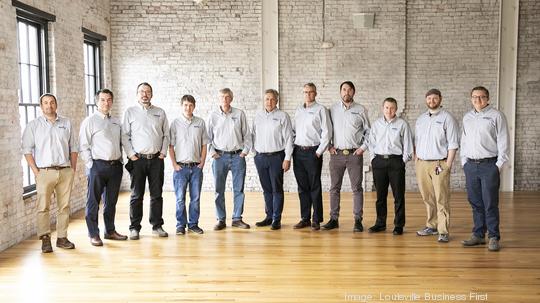
"The original premise was based on an unmet need for a single-use endoscope for large gastrointestinal scopes," Fancher said. "At that time, no one had addressed it well, or really at all to any degree."
Back then, the technology needed to build the single-use devices wasn't advanced enough, particularly the cameras, Powers said.
"We were trying to time a push on the product where it was consistent with having the things we needed to execute the product in a way where we'd be proud of the final result, while also trying to balance that with market need," he said. "We were monitoring public publications of infection outbreaks that were precipitated by endoscopes or caused by endoscopes, and we saw a bunch of that start to pick up."
For example, reprocessed duodenoscopes have been investigated by Food and Drug Administration (FDA), after the Center for Disease Control and Prevention alerted the FDA to a potential association between multi-drug resistant bacteria and the devices. The devices, which are threaded through the mouth, throat, and stomach into the top of the small intestine, have led to infection outbreaks, even after being properly sanitized per manufacturer instructions, according to the FDA.
Now, the FDA is recommending that hospitals and endoscopy facilities begin transitioning to duodenoscopes with innovative designs that facilitate or eliminate the need for reprocessing. A single-use scope, like the ones AdaptivEndo is developing, certainly fits that description.
AdaptivEndo is working to commercialize several single-use, hybrid products including ureteroscopes, cholangioscopes and duodenoscopes, and corresponding consoles called the EndoVue and GIVue, with more single-use endoscopy devices in varying stages of maturity in the pipeline. You can find more detailed descriptions on each product here.
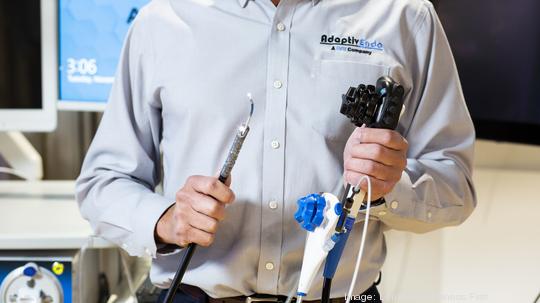
The current market need was relatively nonexistent when AdaptivEndo was first forming, Fancher said.
"Back in the early days, we would get a lot of blank stares and comments like, 'I'm not sure the market is going to go this way,'" he said. "But the mindset of clinicians, manufacturers and distributers has changed."
With the recent market recognition, timed with access to state-of-the-art 3D printing technology and imaging and its experienced team, has propelled AdaptivEndo to these potential partnerships with large medical device companies ahead of FDA regulatory approval. Powers anticipates the first products will hit the market within the next 12 to 24 months.
"I've never worked on a product development project where I felt a higher sense of urgency," Powers said. "I think the market need is real, I think the quality of what we've done is incredible and it's time just to move as quickly as we possibly can, because the market is unfolding very, very quickly. Some of the growth rates that we're seeing in companies globally is unbelievable — it's like 20% to 40% year over year on single-use devices."
AdaptivEndo, headquartered at The Center by SIDIS at 900 E. Main St., is one of several SIDIS portfolio companies, meaning it hasn't had to go out and raise venture capital like a lot of startups. SIDIS agreed to fund the development the devices in late 2017, more than a year after Fancher filed the first patent.
SIDIS's portfolio also includes Lifelines Neuro, which combined with Louisville-based MobileMedTek. That company is engineering portable electroencephalogram (EEG) systems, effectively enabling neurodiagnostics without boundaries.
